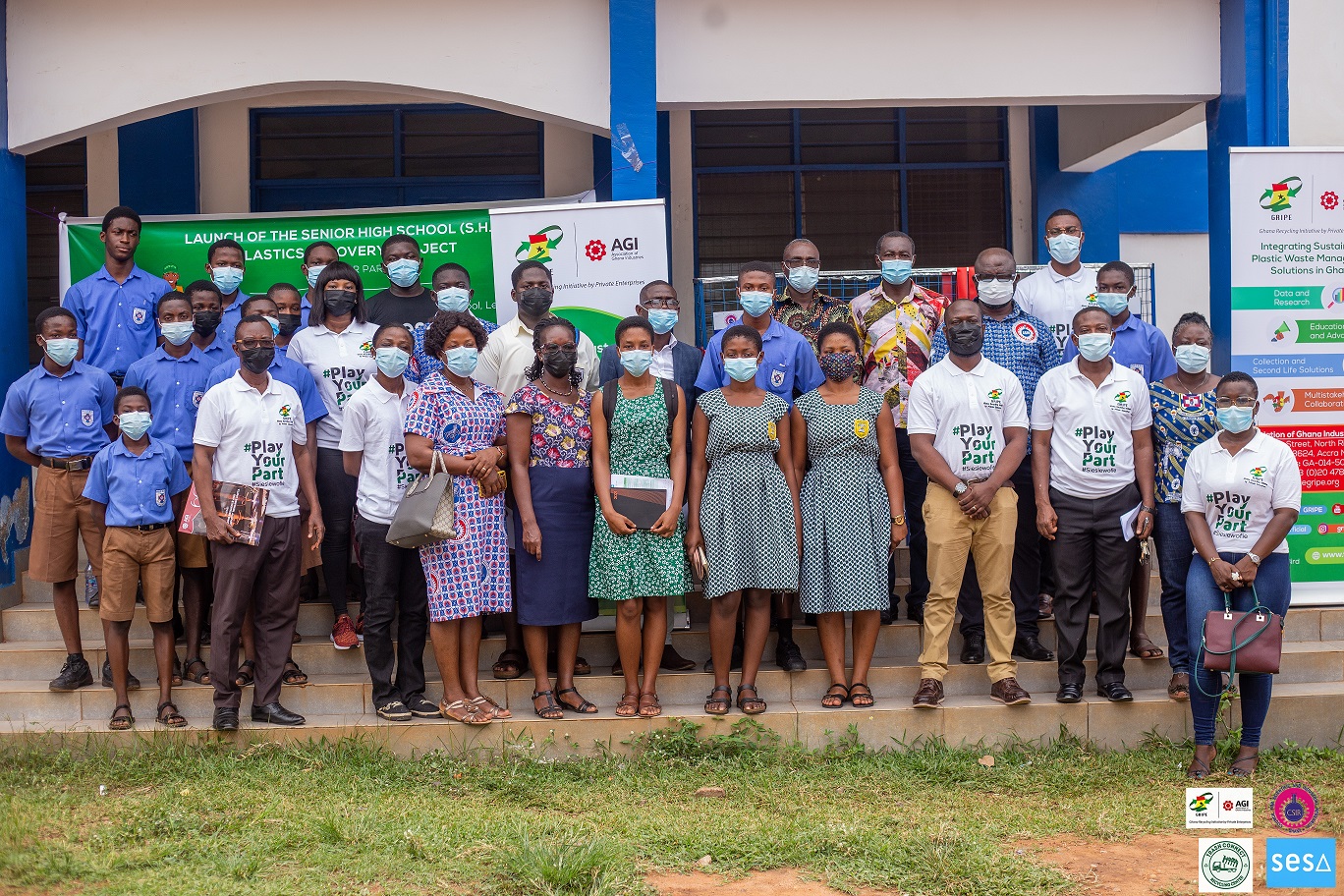The Ghana Recycling Initiative by Private Enterprises (GRIPE), the Council for Scientific and Industrial Research (CSIR), and partners have kicked off a Plastic Recovery project in three Senior High Schools. They are the Presbyterian Boys’ (Legon), Achimota, and Accra Girls’ Senior High Schools (SHS), all in the Greater Accra Region.
The project demands that student Ambassadors sensitise their peers in school, family, and community on proper plastic waste management and recycling. The two bodies also donated metallic bins to the schools to segregate their plastic waste for recycling by the SESA Recycling Limited, and Trash Connect.
Mr. Seth Twum-Akwaboah, the Chief Executive Officer, Association of Ghana Industries (AGI), said the GRIPE initiative formed under the AGI, would promote the circular economy of plastics and help to reduce the cost of solid wastes management in selected schools. “It is important for us to imbibe in our children, desirable attitudes towards plastic waste management, so that it becomes part and parcel of them as they grow. “Admittedly, post-consumer plastic management has become one of the biggest and complex challenges of our time, and as a complex challenge, it requires innovative and integrated solutions to reduce additional cost to conventional development,” he added. Although plastics were a globally important material with diverse applications in the food and beverage industry, textiles, construction, electronic and electrical equipment, medicine and pharmacy, agriculture, amongst others, Mr Twum-Akwaboah said there were environmental concerns associated with its use. Aligned with the SDGs number 11 (sustainable cities and communities), the Association believed plastic waste management was important to the development of Ghana with a huge potential to grow and transform the economy through industrialization, creating jobs and ensuring the judicious utilization of renewable and non-renewable resources.
Dr. Francis Boateng Agyenim, Director, CSIR-Institute of Industrial Research, said plastics are valuable materials that has saved the world from rapid deforestation, and over dependence on non-renewable minerals, such as borosilicate for glass. He added that plastics were light in weight, flexible, easy to process, film forming and less costly as compared to the metal, glass and wood counterparts. These unique properties, he said, made them applicable in diverse industries such as the automobiles, food and beverages, construction, electronics, energy generation and storage.
Dr. Agyenim explained that the high economic value and versatility of plastics had contributed to an average annual global production of 322 million metric tonnes from 2010 to 2020 with a market size of 579.7 billion dollars. It also had a projected growth rate of 3.4 percent between 2021 and 2028. Ghana imported 2.58 million metric tonnes of virgin plastics every year due to the high demand for its products, he said, adding, that was good news for both the global and local economies. The common plastic products in the country ranges from PET bottles through polythene bag to sachets (LDPE and HDPE blend) for water packaging.
Dr. Agyenim noted that research showed that over 70 percent of the plastic products were single-used, hence, the waste was generated within a short time, leading to accumulation in homes and Institutions.
“Unfortunately, the waste is mismanaged. They are burnt in the open, buried in the ground, left in bushes and if lucky landfilled. A situation that promotes flooding and environmental pollution.”
Research conducted by the Council had shown that a systematic and organised recovery of the used plastics is key to sustainable management of the waste, as it reduced the amount of solid wastes discarded with a corresponding decline in collection cost, which is projected at 86 percent of monthly expenditure.
Mr. Basil Ampofo, President, GRIPE, said they believed plastic was a resource and not a waste, and that if they inculcated the attitude of segregating plastic in the students, the national vision of plastic waste management could be realised.
He said they hoped to extend the project to other Senior High Schools across the country.

